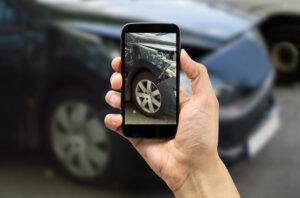The Importance of Evidence in Car Accident Claims
Car accidents can take a large physical and emotional toll, and they can lead to a significant financial burden. If you were the victim of a car accident, it’s important to be able to prove that the accident was not your fault, but rather due to the negligence of another party.

To do this, you must present compelling evidence in your favor. Read on to learn the importance of evidence in car accident claims, and what kind of evidence is important to gather.
What Is Evidence?
Evidence refers to any information or data that supports or verifies a claim, hypothesis or proposition. It is used in law to provide support or justification for an assertion or belief.
In general, evidence is gathered through careful observation, measurement, experimentation, or investigation. It can take different forms depending on the context.
It’s important to note that not all evidence carries equal weight, and the strength of evidence depends on factors such as its reliability, validity, objectivity, and consistency with other available evidence.
Types of Evidence to Gather After a Car Wreck
The above section is good for understanding what evidence technically is, but what specifically counts as evidence of another’s fault in an auto accident? Below is the type of evidence you should gather after you’ve been involved in an accident:
- Photo Evidence: Make sure to take plenty of pictures at the scene of the accident. Take some quick photos of the position the cars ended up in after the collision before moving your vehicles to the side of the road (if possible). Take pictures of the damage to both vehicles, any skid marks, and any guardrail damage. If there is any damage to the roadway that may have contributed to the accident, document this as well. In addition, if you have any visible car accident injuries, such as cuts, bruises, or visibly broken bones, take photographs of these.
- Video Evidence: It’s a good idea to film your interaction with the other driver after your car wreck. They may admit to fault or driving unsafely, but refuse to do so once the police arrive. This video evidence can help your case. If you or a driver who witnessed the accident has a dash cam, this footage can also help you win your case.
- Witness Statement: If any witnesses stop at the roadside to assist you after your crash, ask them to stay onsite so they can give their statement to the police. If they are unwilling or unable to wait with you for the police, ask to record their witness statement and get their contact information so that it can help you later with your report and any potential court case.
- Police Report: It is also important that you get a police report after you get into a car wreck. This is not just helpful for insurance; the police officer may be able to contribute his or her professional opinion as to who was at fault for the accident. This can help you avoid fault with the insurance companies and may help sway a judge or jury if you end up needing to sue for damages.
- Medical Report: You should visit a medical professional as soon as possible after a vehicle collision — even if you don’t think you sustained any serious injuries. There are many injuries, such as traumatic brain injuries, that may not be immediately evident to you after your accident. You want a medical professional to find any complications resulting from your car accident and be able to document the car wreck as the cause. Once your injuries have been documented, even if they are relatively minor, retain a copy of the report for your records.
- Car Service History and Repair Estimate: A service estimate is important for determining the damages to the car that you’ll need to be compensated for repairing. In addition, you’ll want to gather information on past service work to your car. This information can help you prove that your car did not suffer from a lack of maintenance, which could otherwise contribute to an accident.
Why Is Evidence Important in Car Accident Claims?
Evidence is what proves your case.
In a civil court case, the amount of money that you’re owed after an accident is known as damages. Damages includes not only the amount to pay for the damage to the car, but also the amount to cover your medical bills, your pain and suffering, any lost wages from being unable to work, rental car fees while your vehicle is being repaired, and more. Strong and complete evidence is what you need to prove the extent of your damages to the insurance companies or in a court of law.
Your personal injury attorney can help you gather and compile evidence so that you can have as strong a case as possible, even if you don’t end up going to trial. They can also help prove the weight of the evidence – that is, just how much the accident and its aftermath affected you beyond what is blatantly obvious.
The Burden of Proof
It’s important to remember that in a civil case, the burden of proof falls on you, the victim. In other words, it is up to you to prove every element of the case. You must be able to prove that any financial loss and suffering that you’ve endured are the direct result of the car wreck, and that you were not at fault for incurring them. Any evidence that you fail to gather is going to make it harder for you to meet the burden of proof necessary to gain compensation for your damages.
Contact Us Today
Make sure that you have a dedicated personal injury attorney on your side to ensure that you have all the evidence needed to create a strong case. If you’re in California, contact our team at Dunnion Law today for your free consultation.